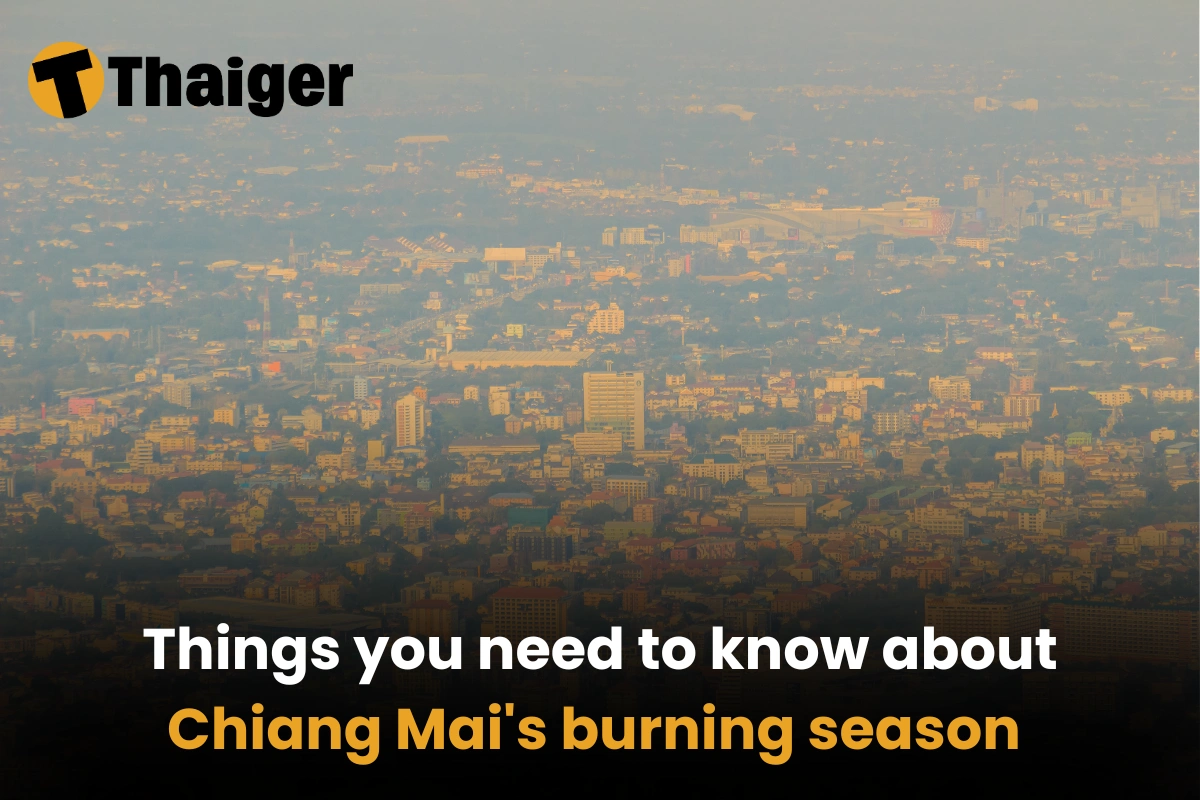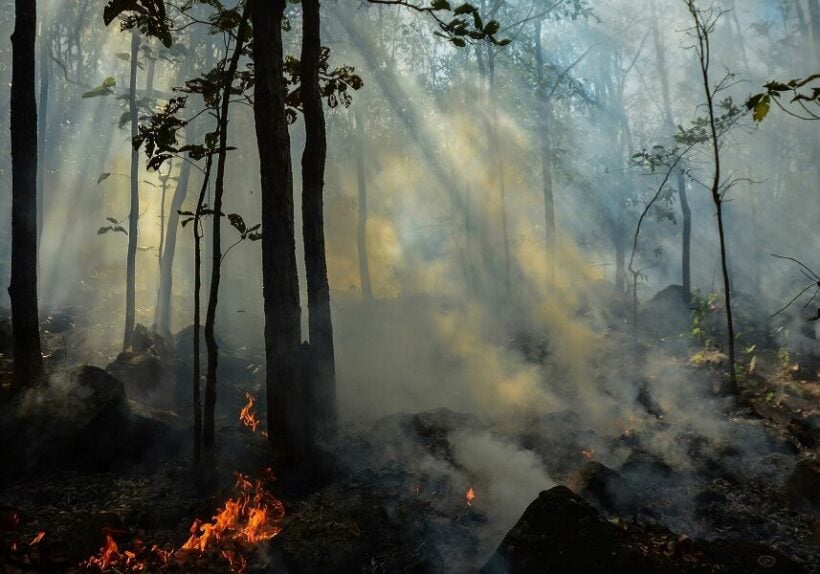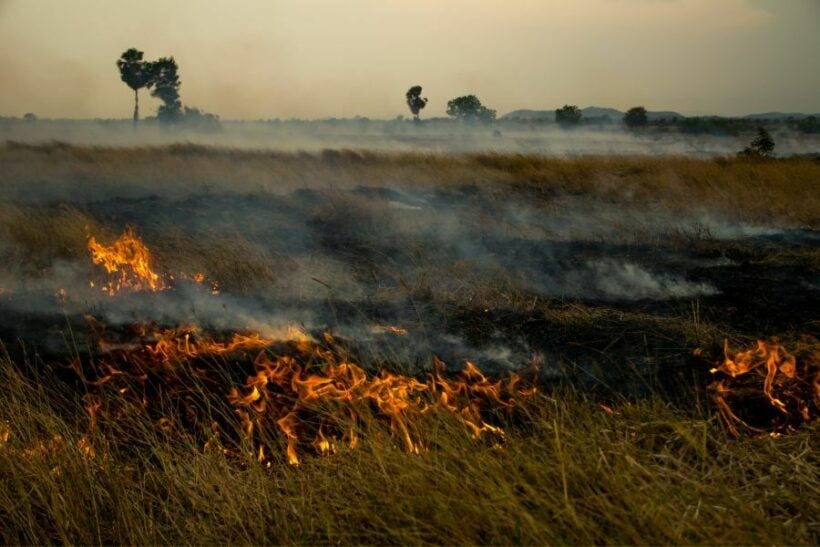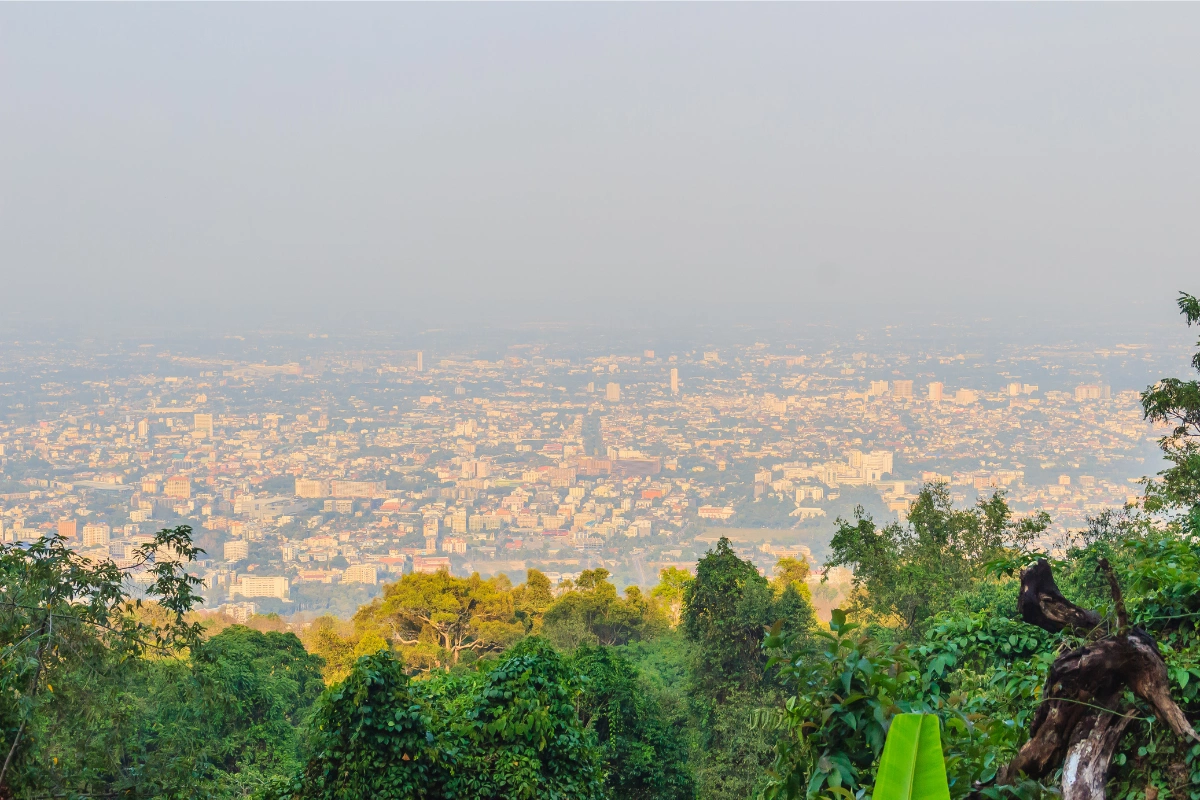Things you need to know about Chiang Mai’s burning season

Chiang Mai, known for its stunning landscapes and rich culture, is a top destination for travellers. However, the burning season, from January to April, can take visitors by surprise, as haze and smog cover the region, affecting air quality and outdoor activities. This article explores the causes behind the burning season, its impact on travel, and practical tips to navigate this challenging time. With the right preparation, visitors can still enjoy the charm of Chiang Mai while staying safe and comfortable.
What is the burning season, and why does it happen?
The burning season in Thailand, particularly in Chiang Mai, occurs annually from January to April, with the worst air quality typically in March. This phenomenon is mostly caused by traditional slash-and-burn agricultural practices, where farmers clear fields by burning leftover vegetation. This practice releases significant smoke and particulate matter into the atmosphere, leading to severe air pollution and health risks for everyone.

Effects of the burning season in Chiang Mai

The burning season has a significant impact on air quality in northern Thailand, particularly in Chiang Mai:
- Severe pollution: Fine particle levels (PM2.5) can rise to dangerous levels, often surpassing 600 μg/m³, far exceeding safe limits set by the World Health Organization. This regularly places Chiang Mai among the most polluted cities globally during this period.
- Health concerns: The polluted air poses serious risks, including respiratory and cardiovascular problems, particularly for vulnerable groups like children, the older people, and those with existing conditions. In 2023, the burning season was linked to approximately 1,800 deaths in Chiang Mai.
- Economic challenges: The poor air quality discourages tourists, impacting businesses that rely on tourism. It also leads to higher healthcare costs, adding financial pressure to the region.
- Emotional impact: The contrast between the clean air of the rainy season and the heavy haze of the burning season can create stress and anxiety among residents, affecting their overall well-being.
Tips to protect your health during the burning season

Chiang Mai experiences a challenging burning season, which significantly impacts air quality. Here are essential tips to safeguard your health during this time:
- Wear N95 masks: When air quality deteriorates, wearing an N95 mask can effectively filter out harmful particulate matter and protect your respiratory system.
- Monitor air quality index (AQI): Stay informed about daily AQI levels through reliable sources. This will help you make informed decisions regarding outdoor activities. For instance, an AQI reading above 100 is considered unhealthy for sensitive groups, while readings above 150 can be hazardous for everyone.
- Limit outdoor activities: On days when the air quality is poor, minimise outdoor exposure, especially strenuous activities. If you must go outside, try to do so in the early morning or late evening when pollution levels may be lower.
- Stay hydrated and rested: Keep yourself well-hydrated and ensure you get enough rest. Staying indoors as much as possible can help minimise exposure to smoke.
- Choose indoor transportation: When travelling around the city, prefer enclosed vehicles like cars with windows up over open-air tuk-tuks or motorbikes to limit exposure to smoke.
- Use air purifiers indoors: If you are staying in accommodations, consider using an air purifier to reduce indoor air pollution. This can help improve the air quality in your living space.
- Plan your visit wisely: If possible, schedule your trip to Chiang Mai outside of the burning season (typically late April) to enjoy the city’s beauty without compromising your health.
Chiang Mai’s burning season from January to April brings significant challenges, with haze and smog affecting air quality, health, and daily life. Rooted in traditional farming practices, this period impacts everyone, deterring tourism and straining local businesses. While the city’s beauty and culture remain captivating, it’s essential to plan carefully, take precautions, and stay informed to ensure a safe and enjoyable experience. For more tips and insights, check out this article: Things to Know Before Going to Chiang Mai. Visiting outside the burning season is highly recommended for the best conditions.
FAQ for Chiang Mai’s burning season
When does the burning season occur in Chiang Mai?
The burning season typically runs from January to April, with March usually experiencing the worst air quality.
What causes the burning season?
The primary cause is slash-and-burn agriculture where farmers burn leftover vegetation to clear fields for new crops. Dry weather further exacerbates air pollution during this time.
How does the burning season affect health?
Poor air quality can lead to serious respiratory and cardiovascular issues. Vulnerable groups like children and the older people are particularly at risk.
What can I do to protect myself during this period?
Wear N95 masks, monitor AQI levels, limit outdoor activities on poor air quality days, stay hydrated, use indoor transportation options, and consider using air purifiers indoors.
Is it advisable to visit Chiang Mai during the burning season?
While it's possible to visit during this time with precautions in place, planning your trip outside of the burning season is recommended for a healthier experience.
Latest Thailand News
Follow The Thaiger on Google News:


























